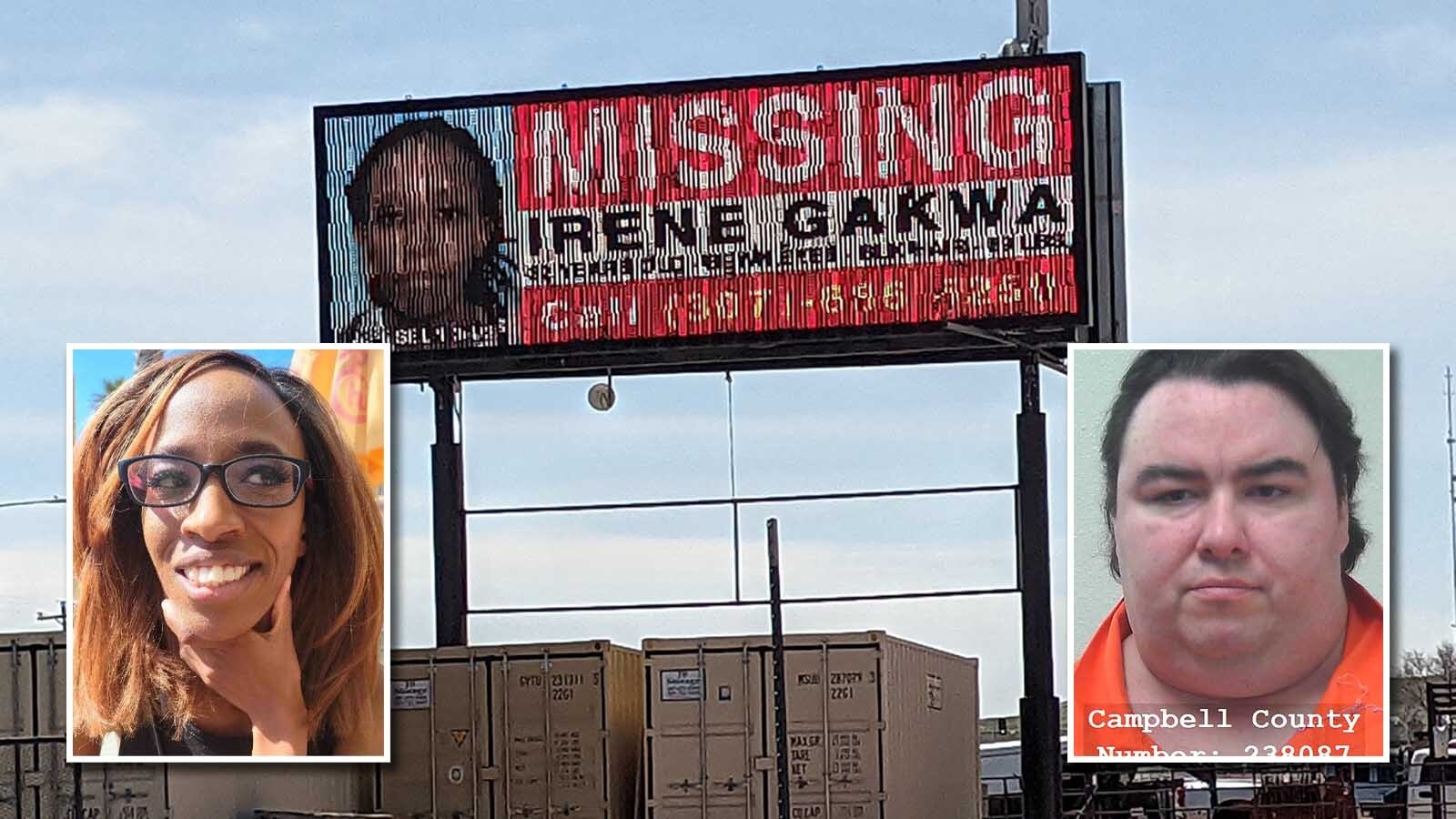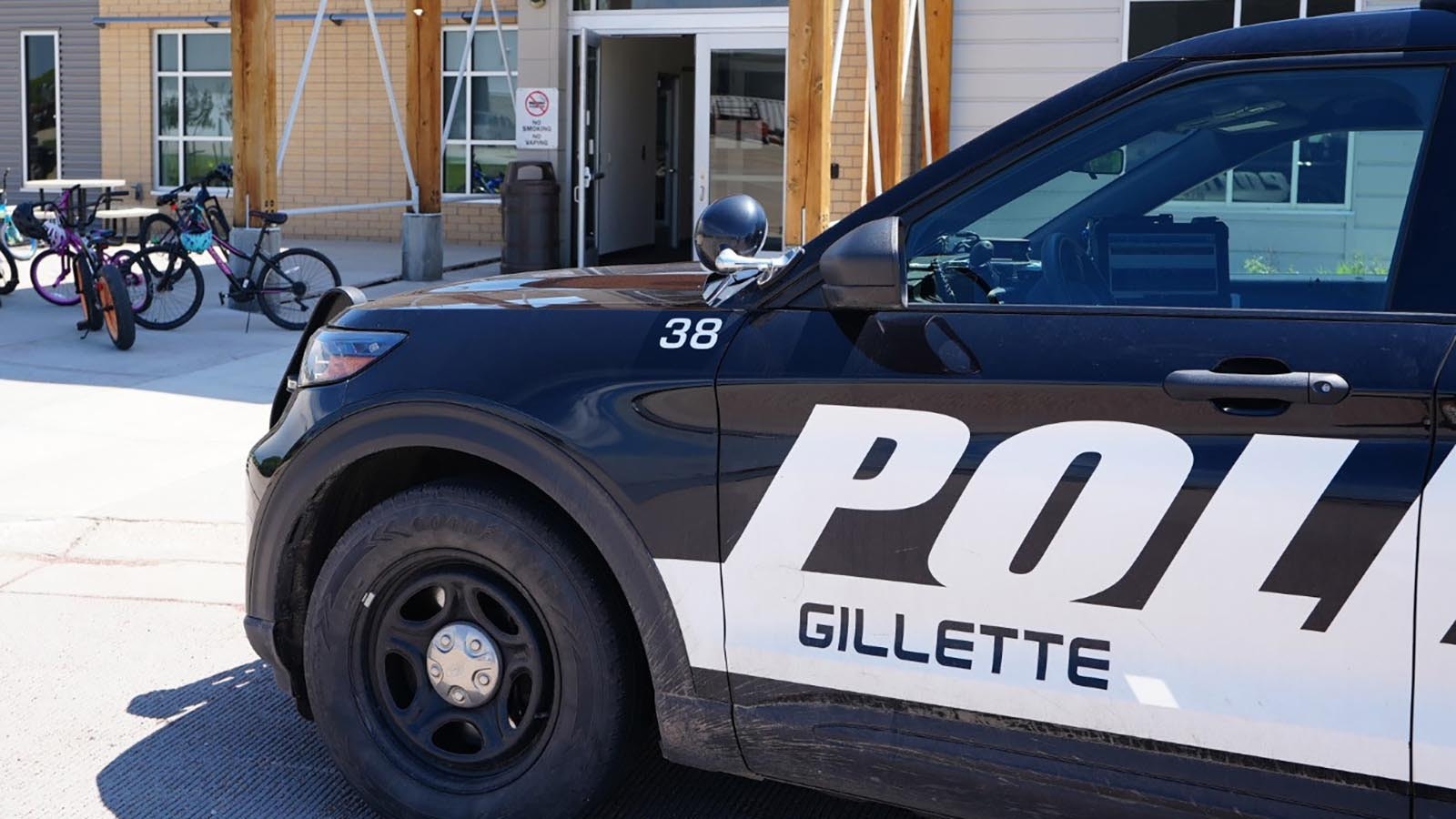GILLETTE — A traveling CNA charged in the freezing death of an elderly dementia resident at a Gillette nursing facility was handed down the maximum sentence of a year in jail in Campbell County District Court Friday morning.
Bernard David Hale, 58, was found guilty by a jury in October of misdemeanor negligent homicide for disarming the door alarm and failing to look outside for 88-year-old Judith DuVall after she wandered into the courtyard one January evening and tumbled onto the snowy ground.
Duvall was unable to get up and ultimately died of exposure and hypothermia at the Legacy Living and Rehabilitation Center. She was found deceased by staff early the following morning with Hale as one of two CNAs on duty that night charged with her care.
Hale was one of four people, including three other contract employees and a full-timer, who were fired after the incident.
Hale was originally charged with felony involuntary manslaughter, which carries a penalty of up to 20 years in prison, but was acquitted last month by a jury who found Hale guilty of the lighter penalty of misdemeanor negligent homicide in a trial marked by two jurors being removed for racially charged language.
The lesser charge brings with it a sentence of up to a year in jail, a fine of up to $2,000, or both.
'Tough Case'
At Hale’s sentencing Friday morning, his attorney, public defender Jonathan Foreman, asked Campbell County District Judge Michael McGrady to release Hale that day given his 242 days in jail since his arrest on March 25 in Wisconsin.
In addition to his time served, Hale agreed to pay $11,275.97 in restitution with $7000 of that going to the Wyoming Division of Victim Services to cover DuVall’s funeral costs and the remainder to DuVall’s estate.
Foreman argued that Hale was taking his punishment seriously and could have opted to bond out of jail when given the lesser sentence but instead chose to remain in jail to do his time.
He further argued that nine months was an appropriate penalty in relation to the offense.
Campbell County Attorney Nathan Henkes, meanwhile, argued that Hale should serve the full 365 days given the unique circumstances of the crime where Hale, as an employee of the care facility, was entrusted by DuVall’s family with her care as a vulnerable patient.
Hale’s actions resulted in “a tragic way of dying,” Henkes argued.
As part of his consideration, Judge McGrady silently read letters from DuVall’s two children as well as two from a former employer of Hale’s and his supervisor at the detention facility work program.
McGrady called it “a tough case,” noting Hale’s lack of criminal history and the positive comments made by others on his behalf.
McGrady also acknowledged that Hale was not the only one working that night who could have opened the door, but that ultimately it was Hale’s obligation to do so.
“This is a hard one,” McGrady said, though ultimately siding with Henkes in sentencing Hale to the full 365-day sentence as well as $4,000 in fees for his public defender and other associated court costs.
Upon hearing his fate, Hale was reticent, quietly stating that he did not care to address the court or speak on his own behalf. He also did not vocalize whether he planned to appeal the sentence.
Both sides agreed to no probation following Hale’s release on March 25, 2026.
Questioning Justice
Some in the legal community like Laramie-based defense attorney, H. Michael Bennett, questioned whether justice had been served upon hearing Hale received the full year sentence and other fines given the racially charged comments of one of the jurors during deliberation on Oct. 23.
As the jury deliberated, a juror sent Judge McGrady a note asking if he should report the fact that he overheard another juror using the “N” word a racial slur in conversation with another juror, according to a portion of the court transcript obtained by Cowboy State Daily.
Court rules in Wyoming and elsewhere consider such racially biased language to be in direct violation of a defendant’s right to an impartial trial, which disqualifies that person from serving as a fair juror and allows them to be replaced by an alternate.
The juror who reported the offense, referred to as Juror 6 in court documents, was called into chambers to address the note, saying he’d overheard a male juror, identified as Juror 14, sitting at the far-end of the table say the “N word” to the juror sitting beside him.
“Like I said, I wasn’t in on the conversation. But I did hear the “N” word, and then I heard the word “black man,” as if correcting himself,” Juror 6 told the court.
Both Removed
After some deliberation, the court called the man, identified as Juror 7 with whom Juror 14 was speaking when he said the racial slur.
Judge McGrady asked if he’d heard Juror 14 use the “N” word to which he said he had, but not in relation to the defendant.
“It wasn’t anything due to the case, but it was on a – an ordeal that he was dealing with [at] an auto body kind of store, something like that, where he was getting something fixed,” Juror 7 told the court.
He believed the context was in relation to the man’s camper when he “mentioned that racial slur,” he said, according to the transcript.
Juror 7 further explained that he thought the reference was in response to fixing something or “a description of something being done” and not directed toward any individual.
After questioning two other jurors, it was determined that nobody else besides the two jurors questioned had heard the racial slur.
Foreman argued for excusing both Juror 14 and Juror 7.
“…We already have a juror who used – clearly used a racial slur, another juror who clearly heard it and didn’t report it. Both those people should not be on the jury,” Foreman said, according to the transcript.
Henkes disagreed, asserting that Juror 7 didn’t “indicate that he believed it or agreed with it, simply that (it) was something that was told to him.”
Foreman pushed back, noting that Mr. Hale is an African American male, and such racial slurs should be “explicitly noted.”
The court agreed and removed both jurors and both were called before the court and excused without incident.
Attempts to reach Juror 14 were not successful.
Fair Sentencing?
It’s unclear how Hale felt about the suggestion of that racial slur as he has yet to respond to Cowboy State Daily’s request for an in-jail video call or text exchange though he has indicated he is interested in sharing his story.
Hale, who has ties to Alabama, had only been in Wyoming for a few months prior to DuVall’s death.
Defense attorney H. Michael Bennett, however, was appalled by the juror’s conduct on Hale’s behalf, wondering whether Hale’s Constitutional rights were met in light of today’s maximum sentence.
On one hand, Bennett said, justice was served in that the jury was able to deliberate, then return with a unanimous verdict, and ultimately, the two jurors were removed for making and not reporting the racial slur.
That said, Bennett feels the last thing a defendant should have to worry about is their skin color and whether it in any way plays into a jury’s decision or sentencing.
“Mr. Hale was there for all of that and was able to witness it,” Bennett said, noting that it’s hard to un-ring the bell of racism once sounded.
“If we all agree that sort of pain and suffering comes at a cost, then you certainly wonder where that cost was reflected, and it's certainly not reflected in a max sentence from the court,” he said.
Individualized sentencing should be consistent for everyone, he noted.
"So either we believe in individualized sentencing or we don’t,” he said, “and if we do, we can’t just put our blinders on without taking into account the cost to the defendant.”
Jen Kocher can be reached at jen@cowboystatedaily.com.






